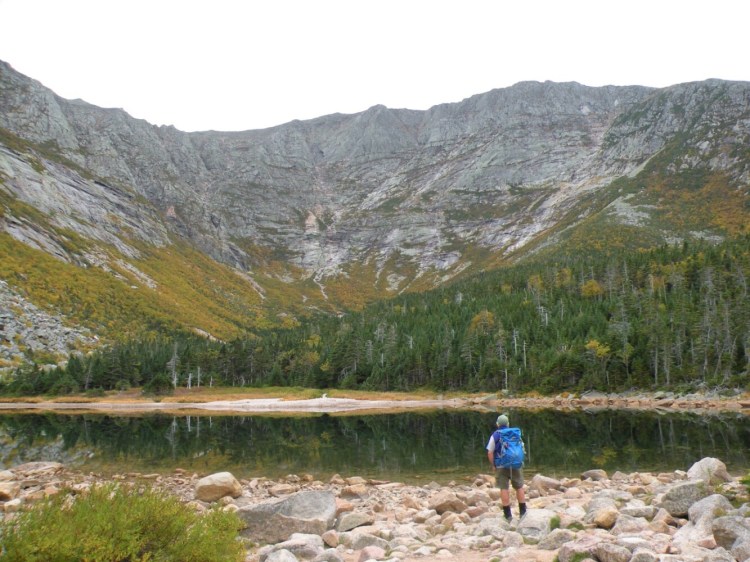Two injured hikers were airlifted from Mount Katahdin on Tuesday in simultaneous rescues using a Maine Army National Guard helicopter.
Rangers received reports of the injured hikers, who were several miles apart on the mountain, within an hour of each other Tuesday afternoon. Both hikers were unable to descend the mountain on their own.
The first person rescued was a 36-year-old woman from Auburn, Georgia, who sustained a lower-extremity injury while she was about 3 miles up the Abol Trail on the west side of the mountain, according to park officials. A member of her three-person hiking party called 911 for help at 3 p.m. and two campground rangers went to the scene.
A Black Hawk helicopter was called in to hoist the hiker off the mountain and take her to Caribou Pit at about 6:40 p.m. From there, she was taken by ambulance to Millinocket Regional Hospital for treatment.
A Black Hawk helicopter responded to Baxter State Park yesterday to assist rangers in two rescues. Both patients were transferred to Millinocket Fire for transport to Millinocket Regional. ???? Maj. Carl Lamb (2018) 1/2 pic.twitter.com/CVbw2JDcvx
— Maine National Guard (@GuardMaine) October 6, 2021
After rescuing the Georgia woman, the helicopter flew to Dudley Trail, where park rangers were helping a 35-year-old Maine man who had slipped and fallen between two large rocks on the trail within the Great Basin around 1:45 p.m.
The man dislocated his shoulder during the fall and was trapped until other hikers freed him. They covered him in warm layers while his hiking partner trekked roughly 4 miles to alert a campground ranger at Roaring Brook around 4 p.m., park officials said. The injured man was moved into a litter and hoisted into the helicopter around 7:45 p.m. He was also taken to the hospital in Millinocket.
Park officials did not provide details about the condition of either hiker.
They said the incidents were a reminder that hikers should never assume an airlift will be available and should use “caution, especially during your descent, as the consequences of accidents become magnified as the daylight and temperatures decline.”
Comments are not available on this story.
Send questions/comments to the editors.



